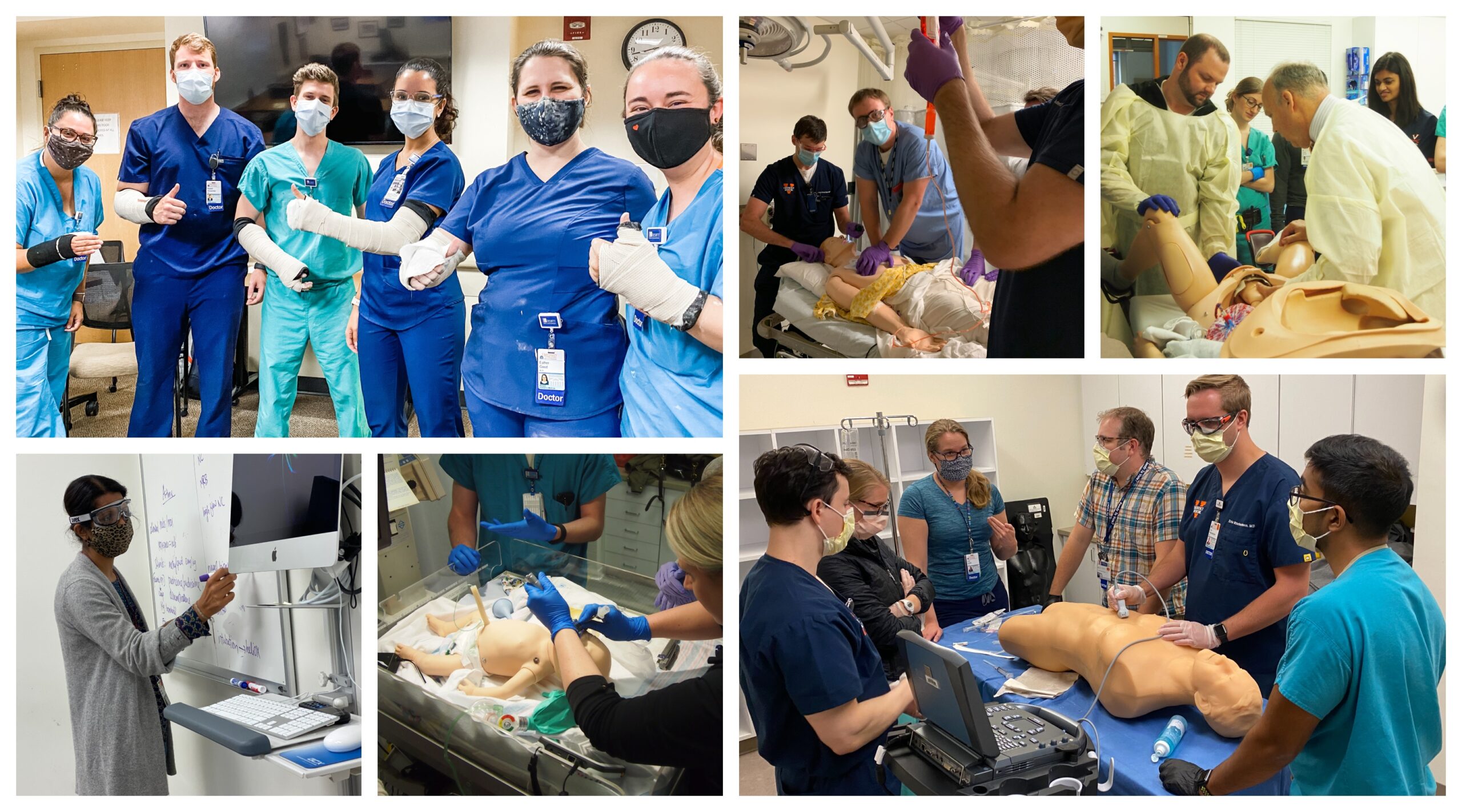Didactics
Emergency Medicine Didactics
Our residency conference curriculum is designed with a blend of didactic sessions, asynchronous learning, hands-on procedural labs, simulation training, board preparation, and presentations by nationally recognized guest speakers. We emphasize shorter, focused didactic sessions that address controversial topics in Emergency Medicine, alongside interactive, hands-on experiences. Lecture sessions are limited to 30 minutes, except for Grand Rounds speakers, and focus on engaging topics rather than basic knowledge. Hands-on activities include quarterly sessions on ultrasound and toxicology, monthly procedure and simulation conference, cadaver labs, and wilderness medicine days. We incorporate the “Foundations of Emergency Medicine” asynchronous curriculum to provide a comprehensive approach across all facets of Emergency Medicine and dedicate time weekly for independent study. Rosh Review is also included to support ITE preparation. Our curriculum is shaped by resident feedback and continuously refined to align with evolving learning preferences and educational needs. Conferences are held every Wednesday from 8:30 a.m. to 12:30 p.m., followed by a lunch attended by faculty, fellows, and residents.
-
Class meetings
-
Dedicated time with the program director, chair, and medical director
-
Pediatric emergency medicine sessions
-
EKG curriculum
-
EMS education
-
Global Health education
-
Morbidity and Mortality
-
Quality Improvement
Monthly Journal Club
The didactic program is supplemented with a monthly journal club. Each session focuses on a particular topic in emergency medicine and is usually hosted at a local restaurant. Papers are distributed ahead of time for critique and review during the session.
A series of mock oral board sessions are also provided twice a year, primarily intended for the graduating PGY3 residents in preparation for their upcoming board certification examinations.
Procedure workshops are held on a monthly basis, and allow for discussion and practice of critical emergency procedures. Prior workshops have included Mock Code Practice, ACLS, PALS, Emergency Ultrasound, ENT & Ophthalmologic procedures, ATLS, ED Equipment and ECG, Mass Casualty & Disaster Drill and Difficult Airway Skills.
Emergency Medicine residents on rotation in the Emergency Department are free of clinical duties in order to attend conference (i.e. attendance is required). Residents on “off service” rotations have individual schedules based on agreements with their off-service department.


